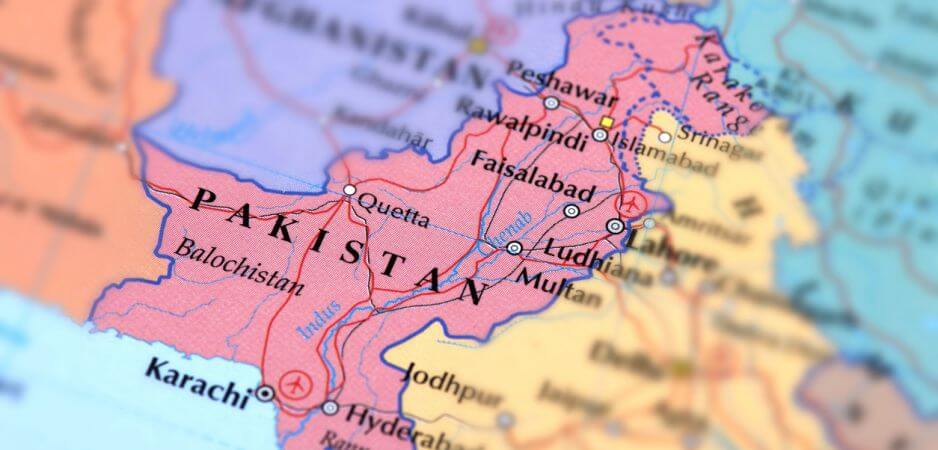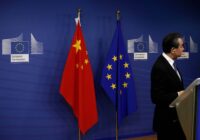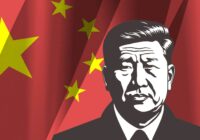With Pakistan, China risks allowing militancy to fester in a country where militancy is not confined to small groups.
China, at the behest of Pakistan, has prevented the United Nations (UN) from listing a prominent Pakistani militant as a globally designated terrorist. Beijing’s protection of Masood Azhar, who is believed to have close ties to Pakistani intelligence and the military, raises questions about the sincerity of a Pakistani crackdown on militants as well as China’s willingness to use its influence to persuade Islamabad to put an end to the use of militant proxies.
The United States, Britain, France and India have long wanted the United Nations Security Council sanctions committee to designate Azhar as a terrorist on the grounds that his organization, Jaish-e-Mohammed (JeM), has already been proscribed by Pakistan as well as the international body.
WHO IS MASOOD AZHAR?
Azhar, a fighter in the anti-Soviet war in Afghanistan and an Islamic scholar who graduated from a Deobandi madrassa, is believed to have been responsible for an attack in 2016 on India’s Pathankot Air Force Station. The militants, dressed in Indian military uniforms, fought a 14-hour battle against Indian security forces that only ended when the last attacker was killed. Azhar was briefly detained after the attack and has since gone underground.
Azhar, who was freed from an Indian prison in 1999 in exchange for the release of passengers of a hijacked Indian Airlines flight, is also believed to be responsible for an attack in 2001 on the Indian parliament in New Delhi that brought Pakistan and India to the brink of war.
Despite being banned, JeM continues to publicly raise funds and recruit fighters in mosques. Indian journalist Praveen Swami quoted Mufti Abdul Rauf Asghar—Azhar’s elder brother—as telling worshippers gathered in a mosque in Punjab in late January 2017 to commemorate a militant who had been killed in India: “Islam is a world power and cannot be destroyed. Whoever tries to destroy it will be destroyed himself. Jihad is the most important obligation of our faith.”
Pakistani indulgence of JeM and Chinese connivance in preventing Azhar—a portly bespectacled son of a Bahawalpur religious studies teacher and author of a four-volume treatise on jihad as well as books with titles like Forty Diseases of the Jews—from being designated as a terrorist has raised eyebrows in both Pakistani and Chinese policy circles.
Opening a window on apparent differences between civilian and military branches of government, Pakistani Foreign Minister Aizaz Chaudhry last year reportedly warned a gathering of political, military and intelligence leaders that Pakistan risked international isolation if it failed to crack down on militant groups. Chaudhry noted that Pakistan’s closest ally, China, with its massive $46 billion investment in Pakistani infrastructure as part of its One Belt, One Road initiative, was increasingly questioning the wisdom of protecting Azhar at Pakistan’s behest.
In 2016, Chinese Vice-Foreign Minister Li Baodong defended his country’s repeated shielding of Azhar by suggesting that attempts to designate the JeM amounted to using counterterrorism for political goals. “China is opposed to all forms of terrorism. There should be no double standards on counter-terrorism. Nor should one pursue own political gains in the name of counter-terrorism,” Li said.
Chinese policy analysts, with close government ties, squirm when asked about China’s repeated veto of efforts to designate Azhar. The analysts suggest that the Pakistani military and intelligence’s use of proxies like Azhar in their dispute with India over Kashmir has sparked debate about the wisdom of sinking $46 billion into Pakistan.
China’s hopes that the investment in infrastructure would persuade the Pakistani military and intelligence to seriously back away from using militant proxies have so far remain unfulfilled.
The investment is part of China’s larger effort to link Eurasia to China through infrastructure. It expects that the linkage will spur economic development both in Pakistan and China’s troubled northwestern province of Xinjiang, where Beijing’s harsh measures against the cultural practices of the Uighurs have sought to preempt Islamist violence.
Responding to the civilian government’s effort to crackdown on Jaish-e-Mohammad, including last year’s freezing of its accounts by the State Bank of Pakistan, Azhar defended the group’s contribution to Pakistan’s defense of Kashmir as well as the jihadist movement at large. “When we entered the tent of the jihadist movement, it had no branch in Kashmir, nor was there lightning in Iraq or Syria. There were just two fronts, in Afghanistan and Palestine, one of them active and one of them shut. We have watched as the jihad we befriended grew from a glowing ember into the sun; from a small spring into a river, and now, as it is about to become a great ocean,” Azhar wrote in the group’s magazine.
 In 2016, a BBC investigative documentary traced jihadist thinking in Britain to a month-long visit to Britain in 1993 by Azhar, who at the time headed Pakistani militant group Harakat ul Mujahideen. Azhar gave 40 lectures during his fundraising and recruitment tour, and was feted by Islamic scholars from Britain’s largest mosque network. More and more scholars joined his entourage as he toured the country before moving on to Saudi Arabia. A passionate and emotive speaker, women reportedly took off their jewelry and handed it to Azhar after listening to his speeches.
In 2016, a BBC investigative documentary traced jihadist thinking in Britain to a month-long visit to Britain in 1993 by Azhar, who at the time headed Pakistani militant group Harakat ul Mujahideen. Azhar gave 40 lectures during his fundraising and recruitment tour, and was feted by Islamic scholars from Britain’s largest mosque network. More and more scholars joined his entourage as he toured the country before moving on to Saudi Arabia. A passionate and emotive speaker, women reportedly took off their jewelry and handed it to Azhar after listening to his speeches.
“It was Azhar, a Pakistani cleric, who was the first to spread the seeds of modern jihadist militancy in Britain — and it was through South Asian mosques belonging to the Deobandi movement that he did it,” says BBC reporter Innes Bowen.
WALKING A FINE LINE
Indian analysts believe that shielding Azhar serves China’s purpose of keeping India preoccupied with the threat of political violence. China is also grateful for successful Pakistani efforts to stop the Organization of Islamic Cooperation (IOC) from criticizing Chinese policy in Xinjiang. Finally, the analysts say, protecting Azhar constitutes retaliation for India’s hosting of the Dalai Lama.
In defending Azhar with one eye on India, China is walking a fine line that threatens to undermine its massively funded policy objectives in Pakistan, a country that for years has been reeling from militancy which has fueled sectarianism at home and created militant groups that, at times, have turned on their Pakistani masters.
By doing so, China risks allowing militancy to further fester in a country where militancy is not confined to small groups, but has been woven into the fabric of significant segments of society. Attempting to heal what is an open wound requires not only economic development, but also a Pakistani and Chinese counterterrorism strategy that refrains from making politically opportunistic compromises.
The views expressed in this article are the author’s own and do not necessarily reflect Fair Observer’s editorial policy.
Photo Credit: Omersukrugoksu
Support Fair Observer
We rely on your support for our independence, diversity and quality.
For more than 10 years, Fair Observer has been free, fair and independent. No billionaire owns us, no advertisers control us. We are a reader-supported nonprofit. Unlike many other publications, we keep our content free for readers regardless of where they live or whether they can afford to pay. We have no paywalls and no ads.
In the post-truth era of fake news, echo chambers and filter bubbles, we publish a plurality of perspectives from around the world. Anyone can publish with us, but everyone goes through a rigorous editorial process. So, you get fact-checked, well-reasoned content instead of noise.
We publish 2,500+ voices from 90+ countries. We also conduct education and training programs
on subjects ranging from digital media and journalism to writing and critical thinking. This
doesn’t come cheap. Servers, editors, trainers and web developers cost
money.
Please consider supporting us on a regular basis as a recurring donor or a
sustaining member.
Will you support FO’s journalism?
We rely on your support for our independence, diversity and quality.






